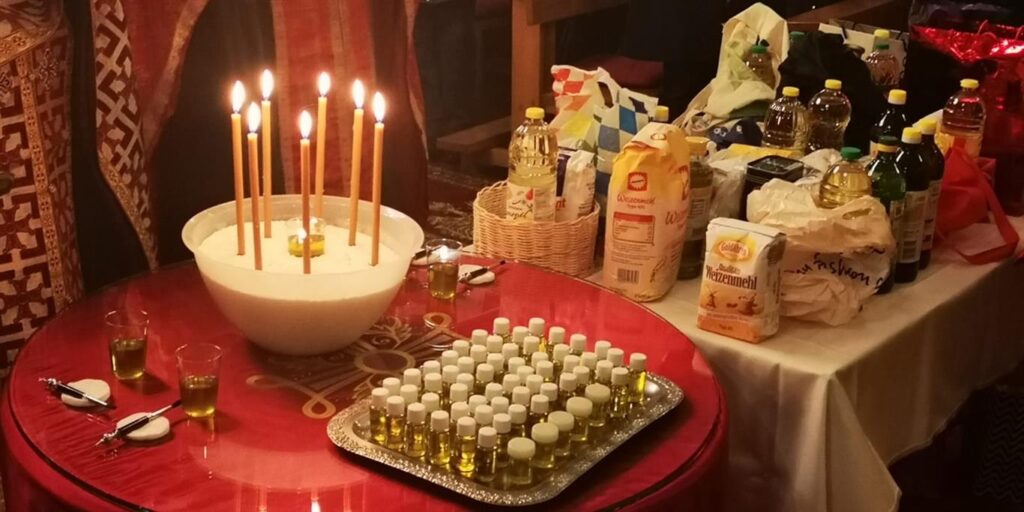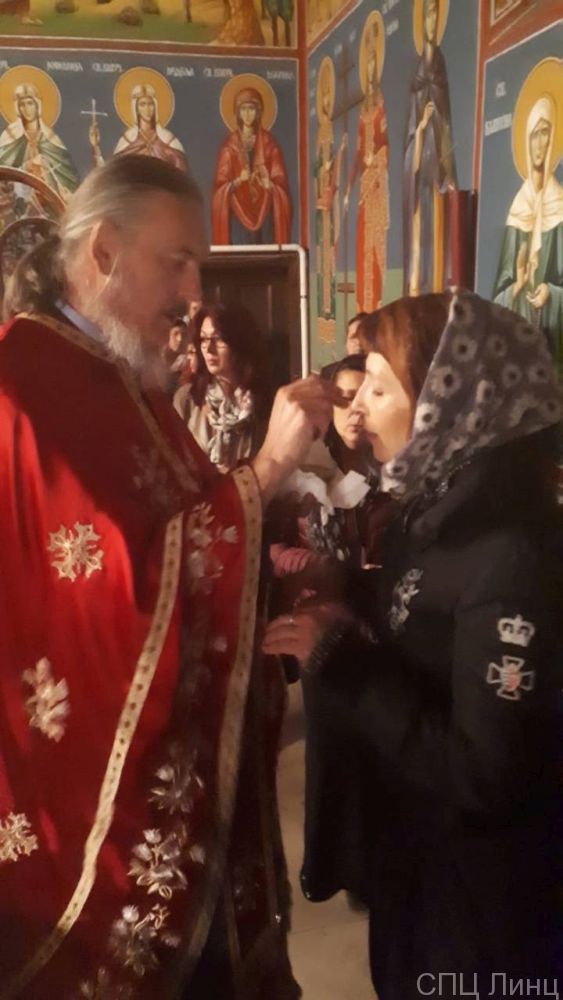Every Holy Week, on the sacred day of Great and Holy Wednesday, Orthodox parishes around the world come together to celebrate one of the most profound and spiritually enriching services of the year—the Sacrament of Holy Unction. Deeply rooted in Scripture, tradition, and the healing ministry of Christ, this sacrament offers not only comfort and renewal but also physical and spiritual restoration for those who are sick or suffering.
But what exactly is Holy Unction, and why is it such a powerful part of Orthodox Christian life? Let’s explore the meaning, history, and rich spiritual beauty of this holy sacrament.
What Is the Sacrament of Holy Unction?
The Sacrament of Holy Unction—also known as the Anointing of the Sick—is a Mystery (sacrament) of the Orthodox Church performed for the healing of soul and body and for the forgiveness of sins. It is not limited to those nearing the end of life but is available to anyone suffering from physical, emotional, or spiritual illness.
During the service, the faithful are anointed with holy oil, accompanied by Scripture readings and prayers for healing. Through this act, the grace of God is called down upon each person, offering strength, restoration, and peace.
Why Is Holy Unction Performed on Holy Wednesday?
Holy Wednesday is a time of spiritual reflection, as the Church approaches Christ’s Passion and Crucifixion. On this day, the faithful seek healing and forgiveness, preparing their hearts for the joy of Pascha (Easter). Holy Unction is a divine opportunity to enter more deeply into the mystery of Christ’s suffering, healing, and resurrection.
A Sacrament of Compassion and Presence
When we’re hurting—physically, emotionally, or spiritually—it’s easy to feel alone. But Holy Unction reminds us that Christ is present with us in our pain, offering His healing touch through the hands of the Church.
As Father Thomas Hopko beautifully explains:
“Christ came to the world to ‘bear our infirmities.’ One of the signs of His divine Messiahship was to heal the sick. The power of healing remains in the Church since Christ Himself remains in the Church through the Holy Spirit.”
This sacrament is the Church’s prayer for healing, united with the will of God and the faith of the believers.
Biblical Roots of Holy Unction
The foundation of Holy Unction is found in James 5:14-16:
“Is any among you sick? Let him call for the presbyters of the Church, and let them pray over him, anointing him with oil in the name of the Lord. The prayer of faith will save the sick, and the Lord will raise him up; and if he has committed sins, he will be forgiven.”
This scriptural passage is the cornerstone of the service, affirming the sacrament’s divine origin and its promise of both healing and forgiveness.

The Service of Holy Unction: What to Expect
🔹 Seven Priests, Seven Readings, Seven Anointings
While ideally performed by seven priests, the service can be celebrated with fewer clergy or even by a single priest when necessary. The service includes:
Seven sets of Epistle and Gospel readings, each focused on healing, forgiveness, and the mercy of God.
Seven prayers invoking God’s grace for the sick and suffering.
Anointing with holy oil, as the priest marks the sign of the Cross on the forehead and hands of the faithful, praying:
“For the healing of soul and body.”
🔹 Order of the Service
The structure of the service includes:
Introductory Prayers and Psalms (143 & 51): Asking God to purify us and renew our spirits.
The Canon: Supplications for mercy, healing, and spiritual strength.
Troparia and Intercessions to the Saints: Especially to healing saints and the Mother of God.
The Exapostelarion and Troparion of Healing: Hymns expressing the Church’s plea for divine healing.
The Prayer of the Oil: A powerful consecration of the oil used for anointing.
Not Just “Last Rites”
Contrary to common misconceptions, Holy Unction is not reserved for the dying. It is not the Orthodox version of “last rites,” but a sacrament of hope, available to all seeking healing and renewal. As Father Hopko reminds us:
“It is clear that the Sacrament of Holy Unction is for the sick—both physically and mentally—and is not reserved for the moment of death.”
A Continuation of Christ’s Healing Ministry
From the earliest days of Christianity, Holy Unction has been recognized as a manifestation of Christ’s mercy. Church Fathers like St. Basil the Great, St. John Chrysostom, and St. Cyril of Alexandria left behind prayers and teachings that still shape the service today.
A Fountain of Mercy and Grace
Through the Sacrament of Holy Unction, the Orthodox Church invites every believer to receive:
🕊 Spiritual and physical healing
💫 Forgiveness of sins
🤲 Renewed strength and peace
💖 Assurance of Christ’s loving presence
Whether you’re battling illness, burdened by emotional stress, or simply seeking divine comfort, Holy Unction opens the door to God’s healing touch—a moment to unite our suffering with Christ’s, and to embrace His promise of life, both now and forever.
Come and Be Healed
This Holy Week, consider partaking in the Sacrament of Holy Unction. Whether you are in need of healing or seeking spiritual renewal, come with faith and an open heart—and experience the mercy, healing, and love that only Christ can offer.
“O Lord… heal the disorders of our souls and bodies… that in this oil may be glorified Thy most Holy Name.” – Prayer of the Oil
Looking to deepen your understanding of Orthodox Holy Week? Subscribe to our blog and receive insights, resources, and reflections straight to your inbox. ✨

